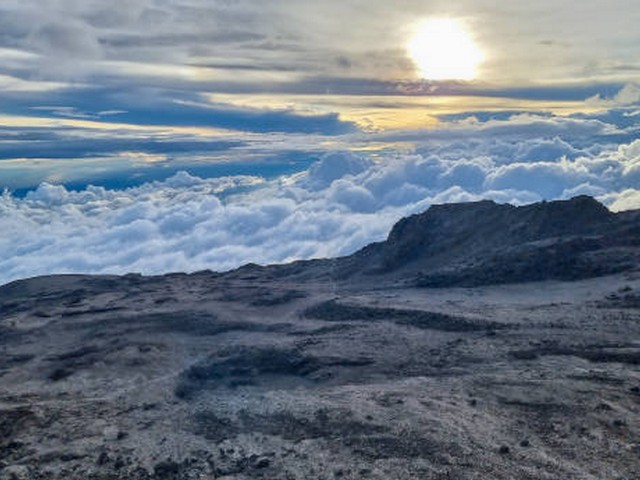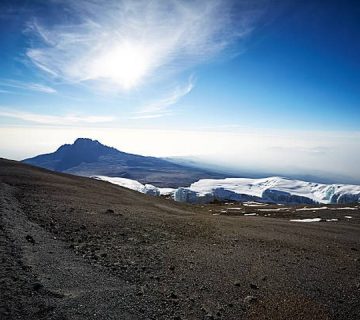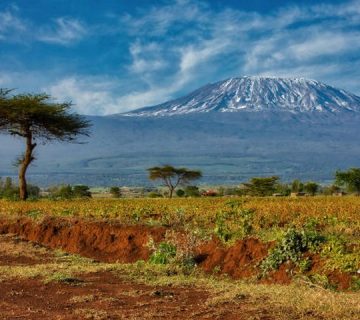Kilimanjaro Trekking With Kids: Is It Possible?
Imagine standing at the roof of Africa, surrounded by clouds and the crisp, fresh air, with your family by your side. The thought of trekking Kilimanjaro with kids might seem daunting, but it’s a journey that can turn into a valuable life lesson and a profound bonding experience. At Kilimanjaro Centre for Trekking and Ecotourism (KCTE), we believe that adventures are best shared with loved ones, and yes, that includes your children! Let’s explore how you can make this dream a reality, ensuring an enjoyable and safe experience for the youngest climbers.
Why Consider Kilimanjaro Trekking for Your Family?
Unforgettable Family Bonding Experience: Climbing Kilimanjaro offers a unique opportunity to strengthen bonds. Families must support and encourage one another, sharing triumphs and challenges along the way.
Educational Adventure: The diverse ecosystems of Kilimanjaro, from rainforest to alpine desert, provide a living classroom for children. They can learn about geology, wildlife, and the importance of conservation firsthand.
Building Resilience and Confidence: Overcoming the challenges of a Kilimanjaro trek can help children develop resilience and boost their confidence, teaching them they can achieve anything with determination and preparation.
Preparing for the Trek: Tips and Considerations
Assessing Suitability
Before planning your trek, consider your child’s physical health, fitness level, and interest in outdoor activities. Children above the age of 10 are generally more suited to handle the rigors of a Kilimanjaro trek. However, every child is different, and a positive, mature attitude is just as important as physical ability.
Choosing the Right Route
Opt for a route that provides a gentler ascent and more days for acclimatization. For families, the Marangu Route and Machame Route are popular choices. These routes offer a more gradual climb and better opportunities for acclimatization, making them more suitable for children.
Training Together
Prepare as a family. Engage in regular hikes and endurance training months before your trip. Not only does this build physical stamina, but it also helps in gauging how your children handle long periods of physical activity.
Health and Safety
Consult with a healthcare provider to ensure all family members are fit for the climb. Discuss altitude sickness and its signs, and consider spending a few days at a high altitude location before your climb to help acclimatize.
What to Pack: Essentials for Kids
Packing the right gear is crucial to ensure your child’s comfort and safety on the mountain:
- Layered Clothing: Temperature on Kilimanjaro varies greatly. Equip children with moisture-wicking base layers, insulating layers, and a waterproof outer layer.
- Proper Footwear: Invest in high-quality, broken-in hiking boots and thermal socks.
- Sun Protection: High-altitude sun exposure can be intense. Pack sunscreen, SPF lip balm, and a wide-brimmed hat.
- Hydration Packs: Children may find them easier to use than water bottles, encouraging regular hydration.
On the Mountain: Ensuring a Smooth Experience
Pace and Breaks
Maintain a slow pace (‘pole pole’ as we say in Swahili) to conserve energy and aid acclimatization. Frequent breaks help children to rest and rejuvenate.
Nutrition and Hydration
Focus on high-energy snacks and regular meals to keep energy levels up. Encourage children to drink water regularly to prevent dehydration.
Stay Positive and Encouraging
Keeping morale high is essential, especially for young climbers. Celebrate milestones along the way, and reassure children during challenging segments of the trek.
After the Climb: Celebrating and Reflecting
Reaching the summit or even just attempting the climb is a massive achievement. Celebrate this triumph as a family. Reflect on the journey and discuss what everyone learned about the mountain, nature, and themselves.
Why Book With Kilimanjaro Centre for Trekking and Ecotourism (KCTE)?
At KCTE, we specialize in family-friendly trekking adventures. Our expert guides are trained in first aid and altitude sickness, and they have years of experience leading young climbers to the summit safely. We offer tailored itineraries that cater specifically to families, ensuring a memorable and safe trekking experience for you and your children.
FAQ: Frequently Asked Questions
Q: What is the minimum age for children trekking Kilimanjaro?
A: While there is no legal minimum age, we recommend that children be at least 10 years old due to the physical and mental demands of the trek.
Q: Can you accommodate dietary restrictions?
A: Absolutely! We provide tailored meal plans accommodating any dietary restrictions or preferences to keep all family members fueled and happy during the trek.
Q: What safety measures do you have in place?
A: Safety is our top priority. We ensure all guides are Wilderness First Responder (WFR) certified, and our treks are equipped with emergency oxygen and first aid kits. Regular health checks are conducted throughout the ascent.
Ready for Your Family Adventure?
Climbing Kilimanjaro with kids is not only possible; it’s an enriching experience that can bring your family closer together. At Kilimanjaro Centre for Trekking and Ecotourism, we are committed to making your family’s dream of conquering Kilimanjaro a safe and memorable adventure. Ready to take the first step on your family’s journey to the top of Africa? Contact us today to start planning your expedition with the experts in family Kilimanjaro trekking!
Climbing Kilimanjaro is a testament to courage and family strength. Let us guide you to the summit with ease and joy, creating memories that will last a lifetime. BOOK NOW with Kilimanjaro Centre for Trekking and Ecotourism (KCTE) and experience the magic of Kilimanjaro with your loved ones.




